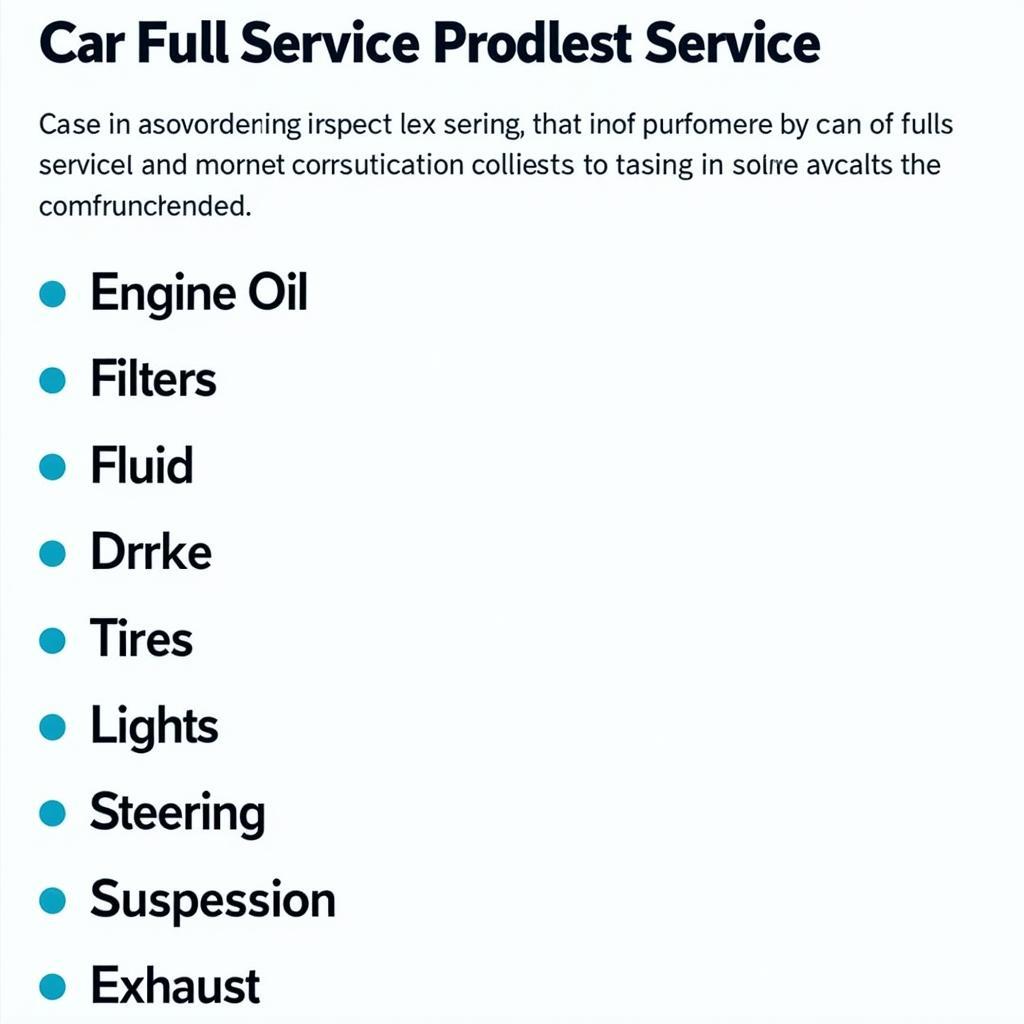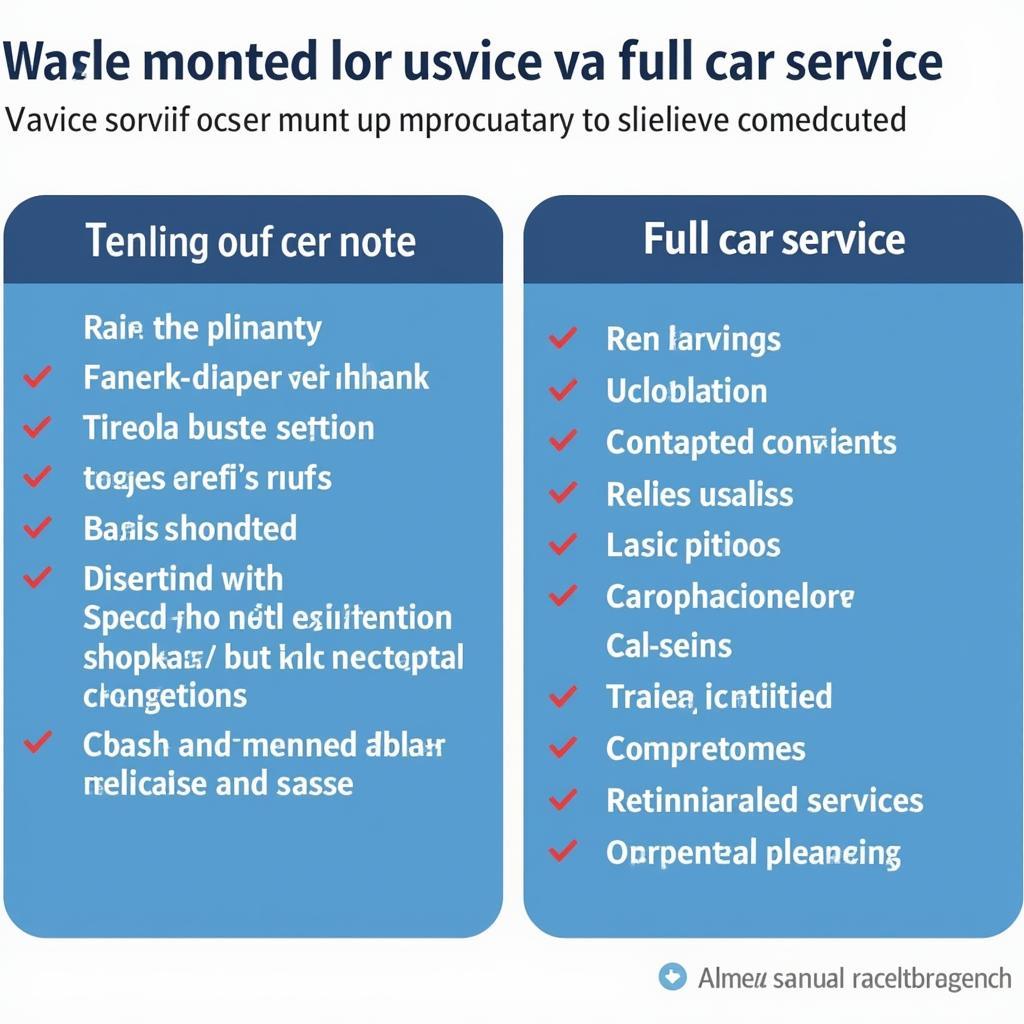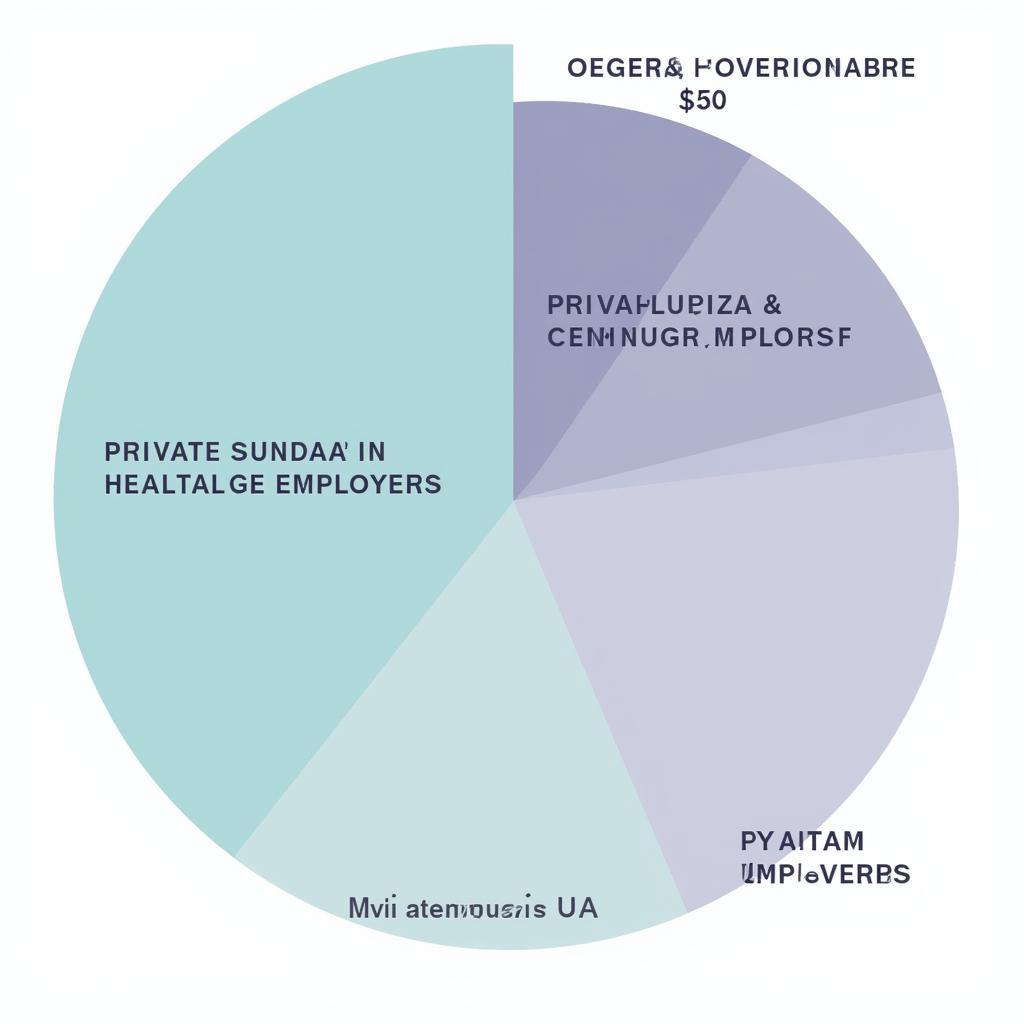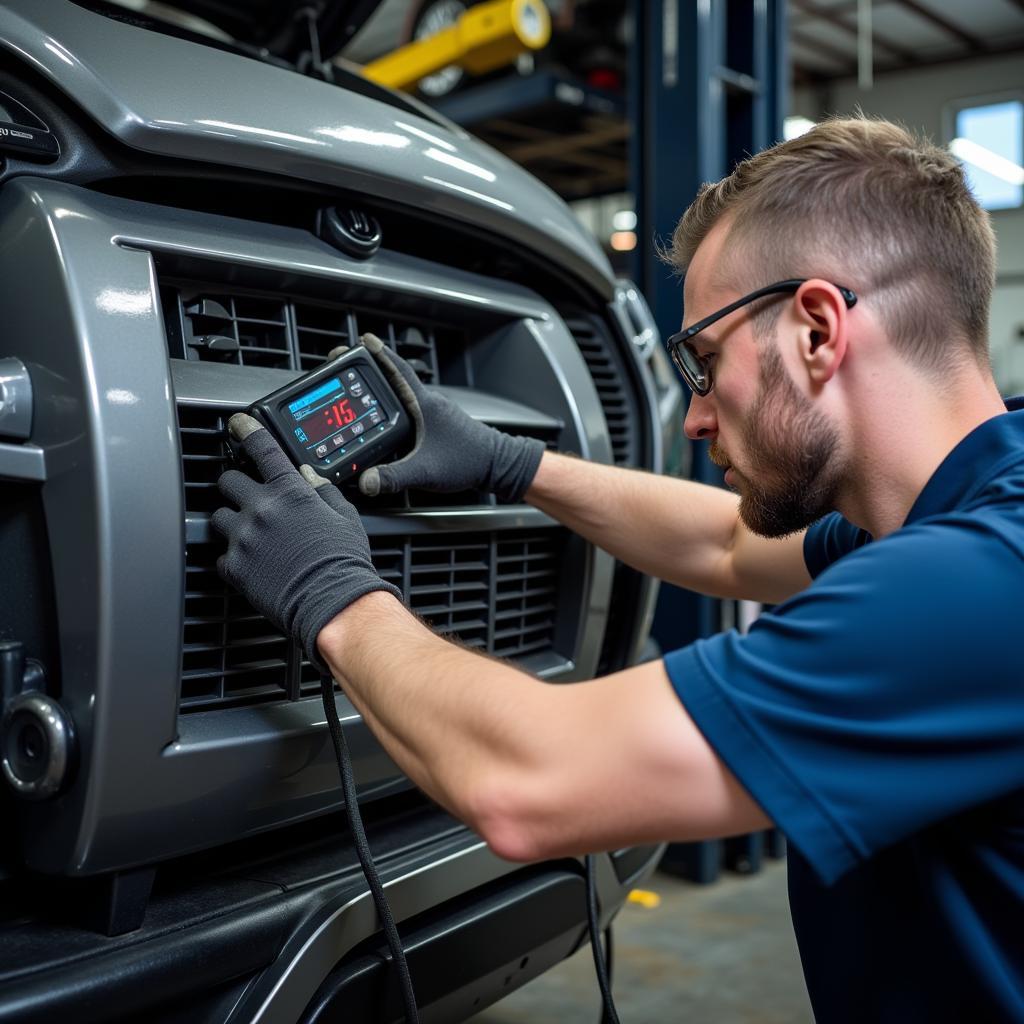How Much is a Car Full Service? A Comprehensive Guide
When it comes to car maintenance, a full service is the gold standard for keeping your vehicle in tip-top shape. But how much should you expect to pay for this comprehensive checkup? The truth is, the cost of a car full service can vary significantly depending on several factors. This guide will delve into everything you need to know about car full service costs, helping you budget effectively and avoid any surprises.
Understanding a Car Full Service
Before we dive into the cost, let’s clarify what a car full service actually entails. Unlike a basic service, which focuses on essential checks, a full service is much more comprehensive. It typically includes:
- Oil and Filter Change: The lifeblood of your engine, fresh oil and a new filter are crucial for optimal performance.
- Fluid Level Checks and Top-Ups: This includes coolant, brake fluid, power steering fluid, and more, ensuring everything is at the correct level for safe and efficient operation.
- Brake Inspection: Your brakes are paramount for safety. A full service includes checking brake pads, discs, and lines for wear and tear.
- Tire Condition and Pressure Check: Proper tire pressure and condition are crucial for fuel efficiency and handling.
- Battery Test: A weak battery can leave you stranded. A full service includes testing your battery’s health and performance.
- Lights Inspection: Ensuring all your lights are functioning correctly is vital for safety and visibility.
- Steering and Suspension Check: This ensures your car handles correctly and that there are no loose or worn components.
- Exhaust System Inspection: Checking for leaks or damage in your exhaust system is important for both performance and environmental reasons.
Factors Influencing Car Full Service Costs
Now that you understand what’s included, let’s explore the key factors that can influence the final price:
1. Vehicle Make and Model
Luxury and high-performance vehicles often require specialized parts and fluids, which can drive up the cost of a full service.
2. Service Location
Urban areas and dealerships tend to have higher labor rates than independent garages in smaller towns.
3. Service Package
Some garages offer tiered service packages, with varying levels of comprehensiveness and cost.
4. Additional Repairs
If the inspection reveals any necessary repairs, this will significantly impact the overall cost.
 Car Full Service Checklist
Car Full Service Checklist
Average Car Full Service Cost
While the exact cost varies, here’s a general estimate based on vehicle type:
- Regular Sedan: $200 – $400
- SUV: $250 – $500
- Luxury Vehicle: $400 – $800+
Remember, these are just averages. It’s always best to contact local garages or dealerships for accurate quotes tailored to your specific vehicle and location.
Why Choose a Full Car Service?
You might be wondering if a full service is really necessary, especially given its higher cost compared to basic services. Here’s why it’s a worthwhile investment:
- Preventative Maintenance: Identifying minor issues before they become major (and expensive) problems.
- Improved Safety: Ensuring all safety-critical components are in optimal working order.
- Enhanced Performance: Keeping your car running smoothly and efficiently.
- Increased Resale Value: A well-maintained vehicle with a documented service history commands a higher price when you decide to sell.
Tips for Saving Money on a Full Service
While a full service is essential, there are ways to keep costs down without compromising on quality:
- Shop Around for Quotes: Don’t settle for the first quote you receive. Contact multiple garages and dealerships to compare prices.
- Ask About Discounts: Many garages offer discounts for seniors, military personnel, or AAA members.
- Consider Using Independent Garages: Independent garages often have lower labor rates compared to dealerships.
- Inquire About Service Packages: Some garages offer bundled service packages that can save you money compared to ordering individual services.
 Car Service Comparison
Car Service Comparison
Don’t Skip Your Car’s Full Service
“Regularly servicing your car is like investing in its long-term health and performance,” says John Smith, a veteran mechanic with over 20 years of experience. “Skipping full services might seem like you’re saving money in the short term, but it can lead to more significant and costly repairs down the line.”
A car full service is an investment in your vehicle’s longevity, safety, and performance. By understanding the factors influencing cost and following the tips outlined above, you can budget effectively for this essential maintenance procedure and enjoy peace of mind on the road.
FAQs
1. How Often Do I Need a Full Car Service?
Most manufacturers recommend a full service every 12,000 miles or annually, whichever comes first.
2. What’s the Difference Between a Full Service and an Interim Service?
An interim service is a more basic service, usually recommended every 6,000 miles or six months. It covers essential checks but isn’t as comprehensive as a full service.
3. Can I Service My Car Myself?
While basic maintenance tasks like oil changes can be done at home with the right tools and knowledge, it’s generally recommended to have a full service performed by a qualified mechanic.
4. Does a Full Service Include an MOT Test?
No, a full service and an MOT test are separate procedures. An MOT is an annual safety inspection required in the UK for vehicles over three years old.
5. Should I Go to a Dealership or an Independent Garage?
Both dealerships and independent garages have their pros and cons. Dealerships often have specialized technicians and access to OEM parts, while independent garages may offer more competitive pricing.
Explore More Car Service Insights
- What is a Service Agreement Contract for Car
- How Do Vehicle Service Contracts Follow the Car
- Can You Opt Out of a Service Contract Car Warranty
Need further assistance with car service costs or booking your next appointment? Contact our dedicated team via WhatsApp at +1(641)206-8880 or email us at [email protected]. We’re here to help 24/7.

